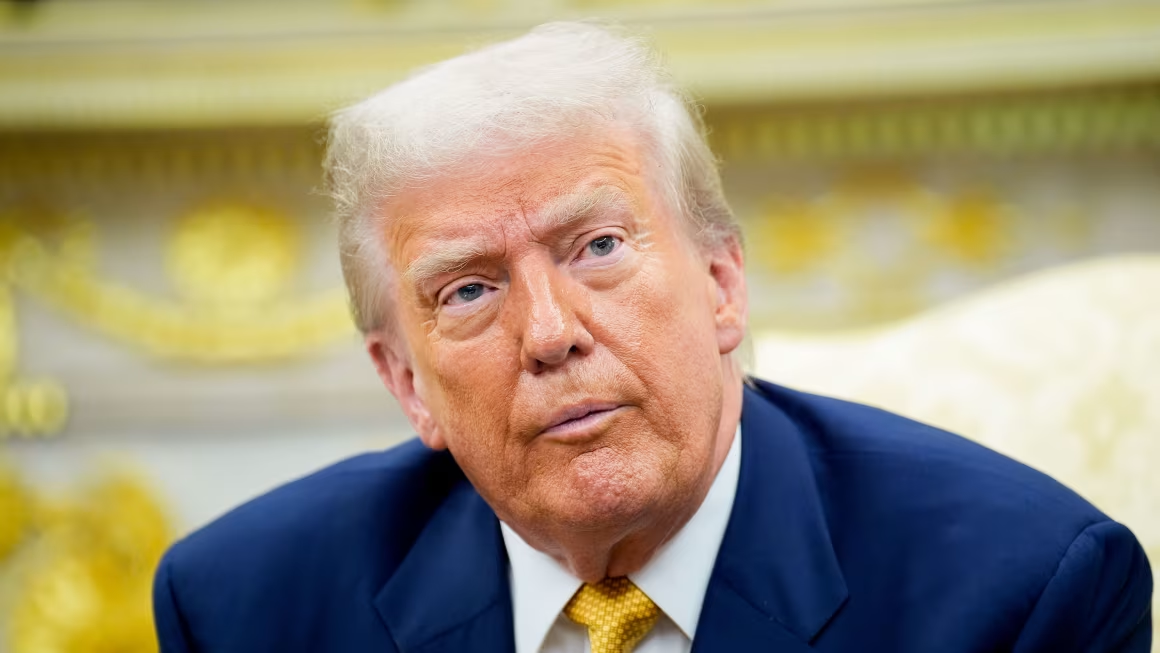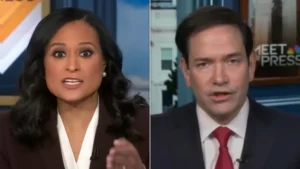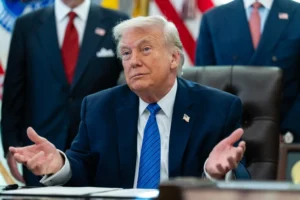Donald Trump says Epstein stole Virginia Giuffre from Mar‑a‑Lago spa—a claim that refocuses attention on their tangled history. Speaking aboard Air Force One on July 29, 2025, Trump accused Jeffrey Epstein of hiring away young women, including Virginia Giuffre, from his exclusive Palm Beach club spa. These comments offer Trump’s most detailed account of the relationship’s breakdown.
The president described the incident as more than just staffing issues: “He stole her… she had no complaints about us, none whatsoever,” Trump said, suggesting that Giuffre, who later became a prominent Epstein accuser, was among the employees Epstein recruited.
The Fallout: How Trump Broke Ties with Epstein
Trump said he initially tolerated Epstein’s behavior, but when staff began disappearing from Mar‑a‑Lago spa—specifically, young women—he issued a warning. When the behavior continued, Epstein was banned from the club altogether. Trump framed the rupture as being rooted in betrayal, not covering for misconduct.
Previously, Trump’s team described the ban as resulting from Epstein behaving “like a creep,” but the new staffing story marks a strategic shift in framing—making Epstein’s recruitment of Mar‑a‑Lago employees the central grievance.
Virginia Giuffre’s Story: From Spa Employee to Advocate
Virginia Giuffre (née Roberts) was hired at Mar‑a‑Lago in 2000 as a teenager; Ghislaine Maxwell allegedly recruited her after noticing her reading a massage therapy book. Soon after, she was introduced to Epstein and subjected to grooming and sex trafficking as part of his broader abuse network.
Giuffre spent the next two decades advocating for survivors, founded SOAR (Speak Out, Act, Reclaim), and became instrumental in exposing Epstein and Maxwell. She died by suicide in April 2025 at age 41—a tragic milestone in the controversy.
Legal and Political Repercussions
Trump’s comments arrive amid renewed scrutiny of the Epstein case, especially following a DOJ and FBI memo confirming his 2019 jail death was suicide and denying the existence of a “client list.”
Meanwhile, Ghislaine Maxwell—Epstein’s longtime associate—has offered to testify before Congress if granted immunity or a presidential pardon. Trump says he is legally able to consider a pardon but has not received any requests to do so.
What This Means for Trump: Reframing His Epstein Connection
By emphasizing Epstein’s poaching of Mar‑a‑Lago staff, Trump is attempting to shift the narrative away from allegations of social complicity toward one where he is a wronged employer reacting in good faith. This framing underscores his earlier claims of distancing himself from Epstein years before his death.
Nonetheless, critics argue this new version disintegrates under scrutiny—particularly regarding the timing of the ban, which reportedly occurred around 2004 after Epstein’s advances toward a teenager related to another club member.
The Epstein Legacy Continues to Haunt
Epstein’s 2019 death in custody remains controversial. His affluent network and connections—real and speculated—continue to fuel demands for transparency. The DOJ’s refusal to release more documents has sparked backlash even among conservative activists hoping for revelations of wrongdoing by power players. TIME
Maxwell’s pending Supreme Court appeal and potential cooperation with Congress may offer new insights—but only if granted immunity. Without legislative agreement or executive pardon, such testimony seems unlikely.
Why This Allegation Matters Now
Trump’s renewed focus on the Epstein saga comes at a politically sensitive time: it coincides with scrutiny of his administration’s decisions around climate policy, judicial confirmations, immigration, and healthcare funding. The resurfacing scandal provides ammunition for both critics and opponents.
By bringing in the Virginia Giuffre element, Trump may be aiming to humanize his narrative—recasting him as a victim of betrayal rather than a possible enabler.
Conclusion
Donald Trump’s latest claim that Jeffrey Epstein “stole” Virginia Giuffre and other young Mar‑a‑Lago spa staff is a strategic effort to recast a long-standing complex relationship. By focusing on recruitment rather than complicity, the president frames himself as reacting to betrayal—not enabling abuse. Whether that narrative holds under legal and journalistic scrutiny remains to be seen. Future developments—especially Maxwell’s potential testimony—may significantly change the conversation.
Subscribe to trusted news sites like USnewsSphere.com for continuous updates.





